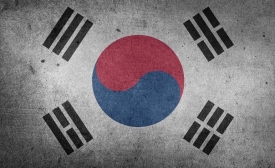korean culture

An introduction to the Korean Foundation's Public Diplomacy Camp, designed to bring together Asian youth in Korea.
Kimchi in space. The Kimchi Bus. Government-sponsored chefs and restaurants spreading the word of Kimchi around the globe. South Korea is one of the nations most involved in branding itself through its food, using food as a part of it’s “soft power.” It’s called “Gastrodiplomacy” — the use of food as a diplomatic tool to help resolve conflicts and foster connections between nations.
Park Jae Yang, the director of the Korean Cultural Center, said that "the contest aims to promote cultural exchange between Egypt and South Korea through food, which has a growing role in bringing people together." He added: "Korean food, also known as hansik, has a very long tradition and history.It was well established by the Joson Dynasty in the 14th century."
A move to share the rich cinematic culture of South Korea, Korean Film Festival 2016 will be held from October 14 to 17 at National Film Corporation Theatre, Colombo 7. Organised by the Embassy of the Republic of Korea and the Korea Foundation in partnership with the National Film Corporation, this is the second consecutive year that the festival is taking place.
The purpose of CultureGround, which was established in March 2012, is vague. CultureGround plans festivals, travel routes and even international exchange events and volunteer programs. Kim describes his company as creating diverse travel programs with the keywords “Learn, Enjoy, Share.”
Soldiers got the opportunity to visit cultural sites and learn about the unique history of Korea during a two-day cultural trip hosted by the city of Dongducheon, South Korea. [...] “Cultural learning opportunities, events and trips like these provide Ironhorse Solders and Families knowledge about Korean traditions and norms,” said Capt. James Nance, civil affairs officer, 1st BCT.
As the double barrels of hard power are increasingly regulated by intergovernmental agencies, nations are expanding their influence through the more pacific work of cultural promotion, and at the forefront of promoting Korean culture is the former diplomat Lee Si-hyung. When Lee was appointed the new president of the Korea Foundation last month, tasked with promoting the national brand overseas.
For the inaugural Korean Theatre Festival in New York 10 years ago, founder Du-Yee Chang performed an original one-man show based on one of Franz Kafka’s novels. [...] Chang sees the event as a sort of cultural exchange to introduce American audiences to traditional Korean theater.







